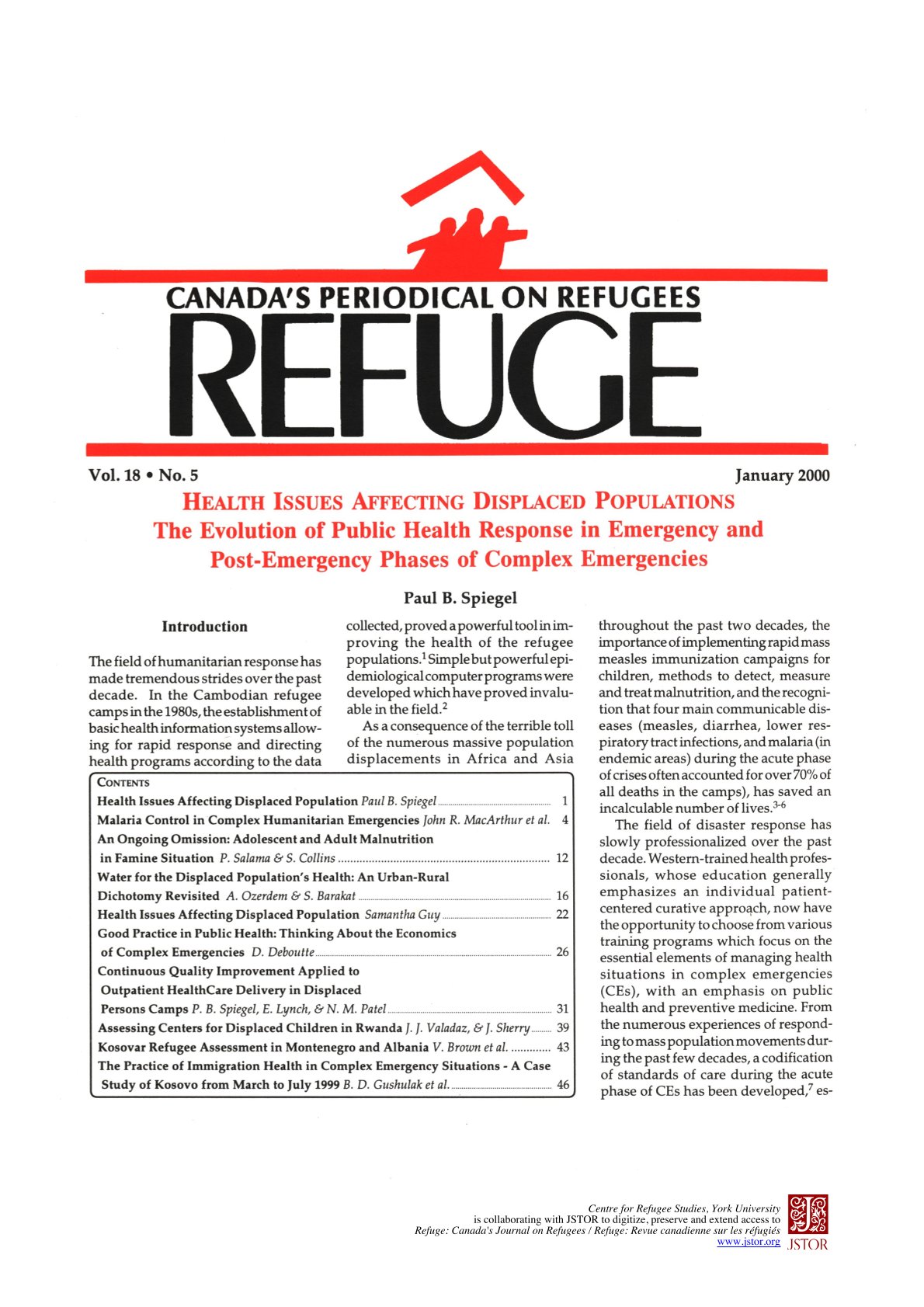An Ongoing Omission: Adolescent and Adult Malnutrition in Famine Situations
DOI :
https://doi.org/10.25071/1920-7336.22046Mots-clés :
humanitarian response, health, malnutrition, famine, adults, adolescents, research gapRésumé
La famine prolongée engendre la malnutrition dans tous les groupes d’âge. Le groupe des moins de cinq ans est systématiquement ciblé pour intervention nutritionnelle dans la majorité des situations d’urgences complexe où la famine est un composant majeur. Les autres enfants et les adultes, pour leur part, sont souvent ciblés très sporadiquement, ou même complètement exclus. Cette situation se perpétue malgré les expériences passées en Somalie, en Angola, et, plus récemment, au Sud-Soudan, où un taux constant de mortalité adolescente et adulte ont été associés à la malnutrition. En se basant sur l’exemple récent du Sud-Soudan, les auteurs analysent certaines des raisons de ces omissions, ce qui inclut des facteurs tels : une documentation scientifique inadéquate, le préjugés de l’épidémiologie nutritionnelle traditionnelle, l’inexpérience des agences et des médias, et les pressions issues des sources de financement. Les auteurs font un appel pour qu’une plus grande attention et de plus amples ressources soient consacrées, par la communauté humanitaire, à cibler les adolescents et les adultes dans les situations de famine. De plus, les programmes d’aide devraient s’accompagner d’investigations opérationnelles effectuées dans le cadre d’objectifs de recherche communsStatistiques
Téléchargements
Publié-e
Comment citer
Numéro
Rubrique
Licence
© Peter Salama, Steve Collins 2000

Cette œuvre est sous licence Creative Commons Attribution - Pas d'Utilisation Commerciale 4.0 International.
Les auteurs qui publient dans Refuge conservent le droit d’auteur associé à leur œuvre, et octroient au public une licence Creative Commons Attribution - Utilisation non commerciale 4.0 International. La licence permet l’utilisation, la reproduction et l’adaptation du matériel avec attribution par tous moyens et sous tous formats pour des fins non commerciales. Pour des informations générales sur les licences Creative Commons, visitez le site Creative Commons. Pour la licence CC BY-NC 4.0, consultez le résumé lisible par l'homme.







